Sitcoms Are Dead For One Brutal Reason
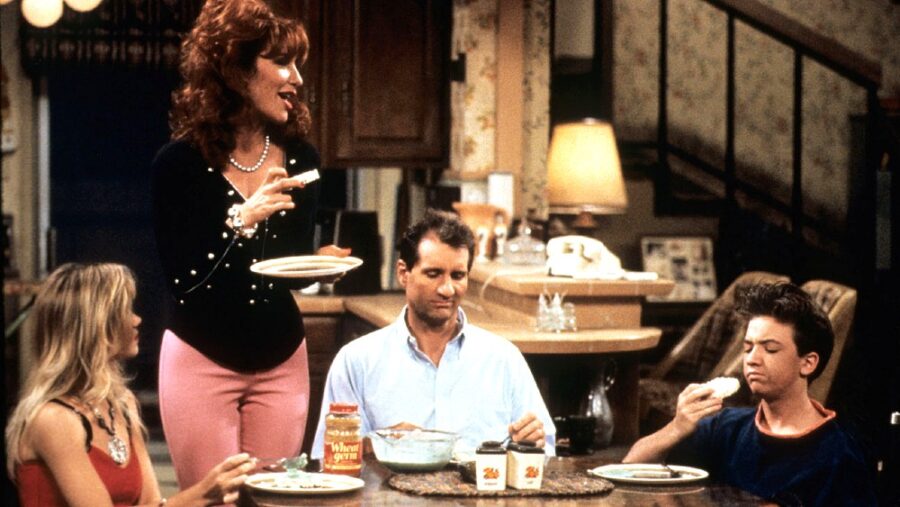
Sitcoms have been a television staple for decades, providing easy laughs to audiences worldwide. However, in recent years, there has been a notable decline in the number of traditional sitcoms on network television. Gone are the days of weekly doses of shows like Everybody Loves Raymond, Friends, or Modern Family. While many attribute the downturn to binge-watching entire series on streaming platforms, the more likely reason is the outdated and harmful tropes.
The Old Sitcom Formula
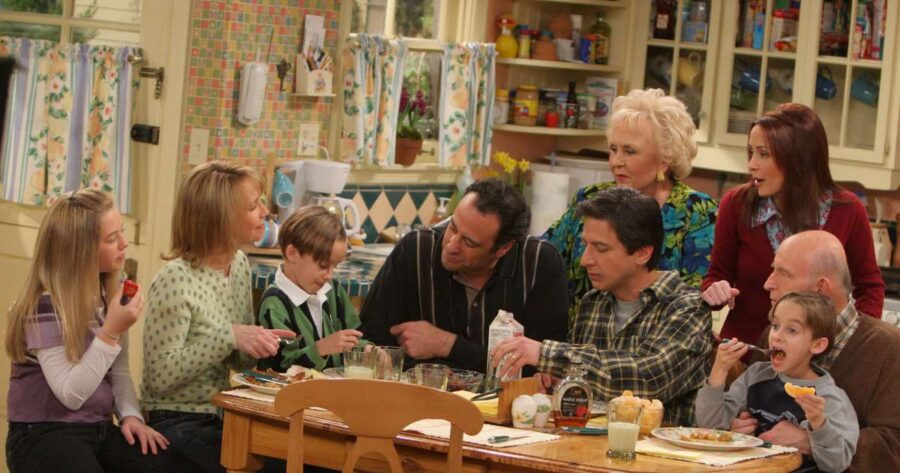
For years, sitcoms like Everybody Loves Raymond followed a predictable formula that often reinforced traditional gender roles and stereotypes. The portrayal of the husband as the bumbling but lovable character, paired with a nagging and often overly controlling wife, became a pervasive theme. While this formula may have elicited laughs in the past, as societal attitudes evolved, people began to question these representations’ impact on real-life relationships.
The Average Joe
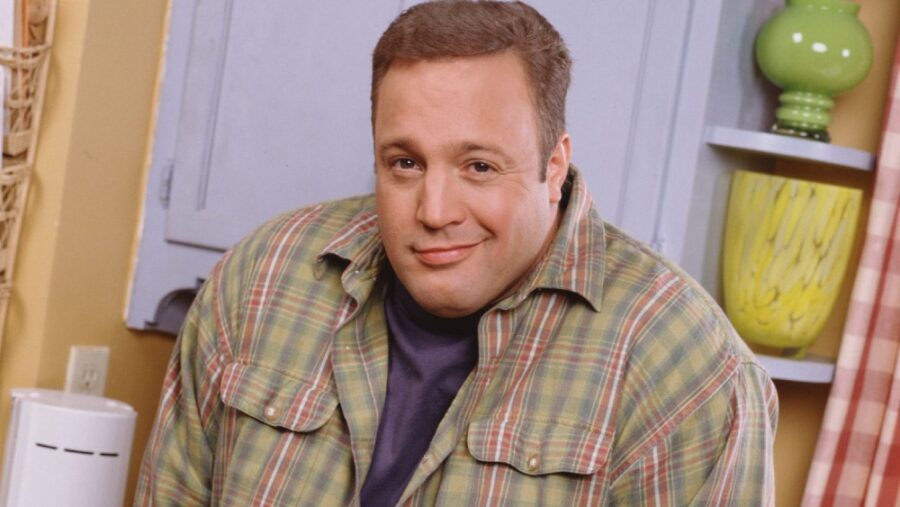
Comedian and actor Kevin James became a poster boy for the misogynistic trope with a brand of humor that doesn’t aim for intellectual heights. His characters often fall into the working-class, “average Joe” archetype, exemplified by his roles as Doug Heffernan in The King of Queens and Kevin Gable in Kevin Can Wait. Both characters exhibit traits associated with patriarchal privilege, featuring controlling, manipulative, and sexist behaviors.
Tracing Back To The ’70s
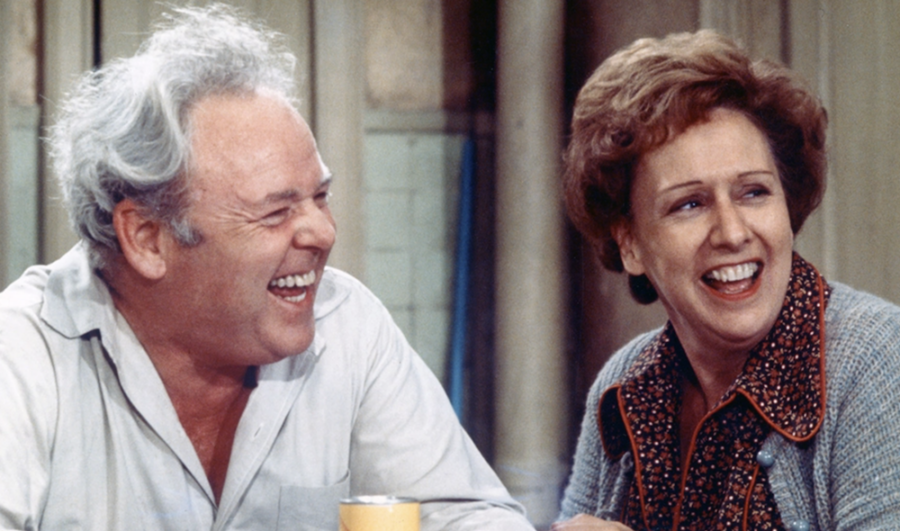
The popularity of working-class buffoon characters is a recurring theme in sitcoms like The Simpsons, King of the Hill, Married… with Children, and even the more progressive shows like Modern Family. This trend traces back to iconic (albeit satirical) figures like Archie Bunker from All in the Family, who were intentionally crafted to be disliked for his prejudiced views, unlike James’s characters. However, Doug Heffernan’s flaws are presented in a more charming light.
Kevin Can F**k Himself Exposes The Reality Behind Sitcoms
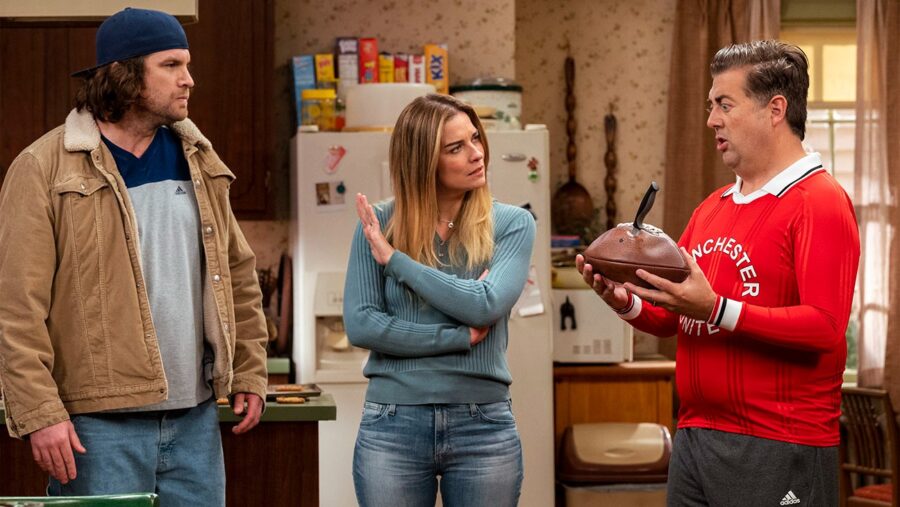
In 2021, Valerie Armstrong created Kevin Can F**k Himself, a dark comedy/satire/drama, as a response to the patriarchal norms showcased in traditional sitcoms. The series seamlessly transitions between sitcom and drama, representing Kevin McRoberts’ (Eric Petersen) perspective and how his wife, Allison (Annie Murphy), deals with the aftermath of his abrasive behavior. While the sitcom aesthetic portrays Kevin as a caricature, the drama lens reveals the underlying ideologies within working-class sitcoms.
Contrary to traditional sitcoms like The King of Queens, where male dominance remains unquestioned, Kevin Can F**k Himself sees Allison try to escape from her destructive, abusive relationship. Her eventual desire to murder Kevin serves as a metaphor for being so trapped that the only way to save one’s self is to kill their partner. While that might seem like an extreme, which some may label as “female hysteria,” it’s a very real situation that women find themselves in within their own homes.
Over two seasons, Kevin Can F**k Himself presents a cathartic resolution, with Allison faking her death and returning to confront Kevin and his controlling behavior. The final confrontation between the couple is portrayed outside the sitcom aesthetic and reveals the true depth of emotional and physical abuse Allison has endured throughout her marriage. Kevin is eventually left to self-destruct as a result of his own anger in the series finale.
Relentless Pursuit Is Outdated

Beyond the tired husband with a nagging wife stereotype, another prevalent trope that has lost its comedic appeal is the portrayal of men relentlessly pursuing women who are initially uninterested in romantic relationships. This includes Ross and Rachel in Friends, Ted and Robin in How I Met Your Mother, and Leonard and Penny in The Big Bang Theory. It’s no wonder that sitcoms are dead.












